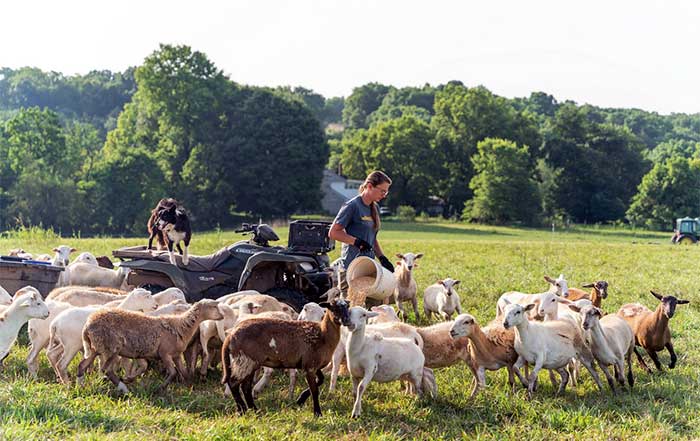Rural small businesses face a unique set of challenges, but they also have advantages over their urban and suburban counterparts – such as a tendency to be more profitable.
Entrepreneurial Benefits of a Rural Environment
Rural businesses tend to operate at a higher profitability margin than urban businesses (56 percent to 53 percent on average), and they are typically comparable in revenue to urban companies, according to a meta-analysis by SCORE, mentors to America's small businesses. This means rural entrepreneurs keep more of their business revenue and are subsequently able to provide a higher quality of life for themselves and their families.
Thanks to the rise of remote work and technology, entrepreneurs who grow up in rural areas no longer have to relocate to a major metropolis to build successful, scalable businesses. Rural areas also tend to have lower business operation costs as well as a lower cost of living than urban and suburban areas.
Entrepreneurial Challenges of a Rural Environment
Despite great potential, rural entrepreneurs continue to face significant barriers. Those challenges lie primarily in three areas:
1. Access to Capital
Cash flow is a conundrum for rural businesses. According to SCORE's Megaphone of Main Street data report, rural entrepreneurs are more likely than non-rural entrepreneurs to say they're impacted by higher costs of doing business (i.e. rent, utilities, gas), as well as higher financing expenses (i.e. higher interest rates, costs to borrow). Two-thirds of all small businesses need outside financing while three-quarters have trouble accessing it. For those in rural areas, the scarcity of local bank branches can be an added barrier.
2. Access to Labor
Rural areas aren't typically teeming with a wide array of industries, and this lack of business diversity limits the economic opportunities available to entry-level workers. With population declining in rural America, rural entrepreneurs (45.3%) are significantly more likely than non-rural entrepreneurs (25.5%) to say that population trends impact their business. In fact, over a third of rural entrepreneurs (35.9%) say there are few qualified workers in their area.
3. Access to Connectivity
Although telecommunication companies have made great strides in improving access to broadband for rural communities over the years, a technology gap remains between rural and non-rural businesses. Rural entrepreneurs (19.2%) are twice as likely as non-rural entrepreneurs (9%) to cite broadband/high-speed internet access as a technology challenge.
Limited access to high-speed internet is a significant challenge for rural small businesses. Not only does stable connectivity lead to growth, but it also helps businesses recruit and retain top talent, maintain steady supply chains and promote goods and services.
Get the support you need with SCORE
To address and overcome these challenges, SCORE offers rural small business owners free mentoring, as well as customized tools and resources online and on-demand in its hub for Rural Entrepreneurs. SCORE Des Moines mentor Don Frazer explains: "In today's competitive world, you need to have an organized plan for success. SCORE volunteer mentors are willing and able to provide advice in a variety of areas." When it comes to rural businesses, Frazer recommends utilizing local resources: "Be involved in your community."
There are many rewards to operating a small business in a rural community, but they don't come without challenges. "When you're farming, which is a 24-7 job, there's a lot to keep track of, and we needed someone to help us with the numbers," said SCORE client Jim Mansfield, co-owner of Four Hills Farm in Versailles, Ky. "SCORE can help you a lot."
Whether your business is rural, suburban, urban or online, SCORE mentors are available to provide guidance and support. Request a mentor today at www.score.org/find-mentor.
About SCORE:
Since 1964, SCORE has helped more than 11 million entrepreneurs start, grow or successfully exit a business. SCORE's 10,000 volunteers provide free, expert mentoring, resources and education in all 50 U.S. states and territories. Visit SCORE at www.score.org.
Funded [in part] through a Cooperative Agreement with the U.S. Small Business Administration.

